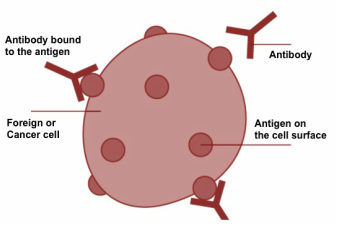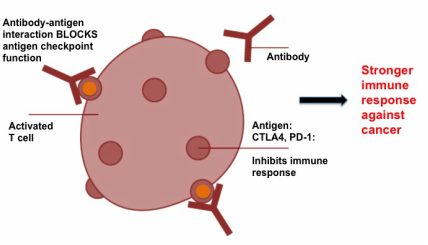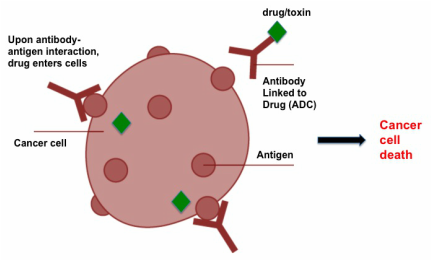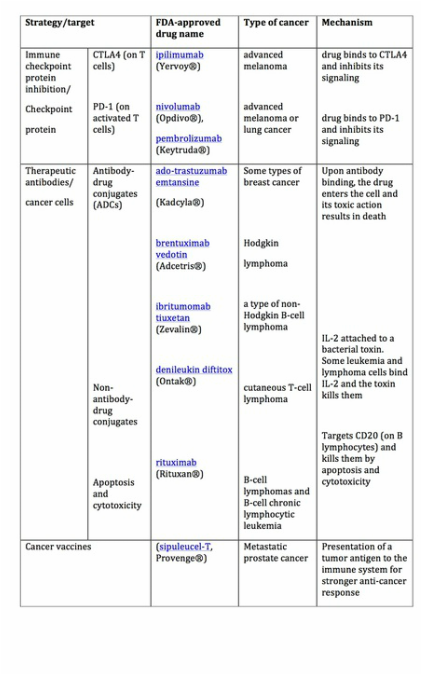
One of these defense or “balance maintenance” systems that has gotten a lot of attention recently is the huge and immensely varied bacterial “cosmos” we have in our guts called “microbiome” (see my previous post on this subject).
But the subject of this post is immunotherapy, a result of research conducted in the “cancer immunology” field, which is a type of cancer treatment designed to boost the body's natural defenses to attack and eliminate tumors. In order for our immune system to defend us from viruses and bacteria, it first has to “recognize” parts of these organisms. The parts that are recognized are “antigens” which are “seen” by our “antibodies”; these antigens are usually located on the surface of the invading organisms. A helpful way to think about antigen-antibody interactions is that of a key and its lock, where the antigen is the key that fits in the antibody lock as shown in the figure where the antibody is bound to the cell surface antigen. Cancer cells on the other hand are our own cells, although abnormal. They are not necessarily recognized by our immune system, and they then proliferate rapidly to form tumors due to specific mutations in these cells that make them divide in an uncontrolled and faster way compared to normal cells in the same parts of our bodies (tissues).
There are different types of immunotherapies being used or developed to treat specific cancers. They essentially consist of helping the immune system recognize these cancer cells and strengthen the immune response to hopefully ensure tumor reduction and/or elimination.

Another immunotherapy approach is the use of cancer treatment vaccines which are usually made from a patient’s own tumor cells, or immune cells which are manipulated/activated in the laboratory to react against tumor cells and then given back to the patient. One such vaccine has been FDA-approved for treatment of metastatic prostate cancer in men (although it does not cure the cancer, it has been shown to extend the life of patients by several months; see table below) and other candidate vaccines are being tested to treat forms of brain, breast, and lung cancer.
Table: Immunotherapies for which there are FDA-approved drugs



 RSS Feed
RSS Feed